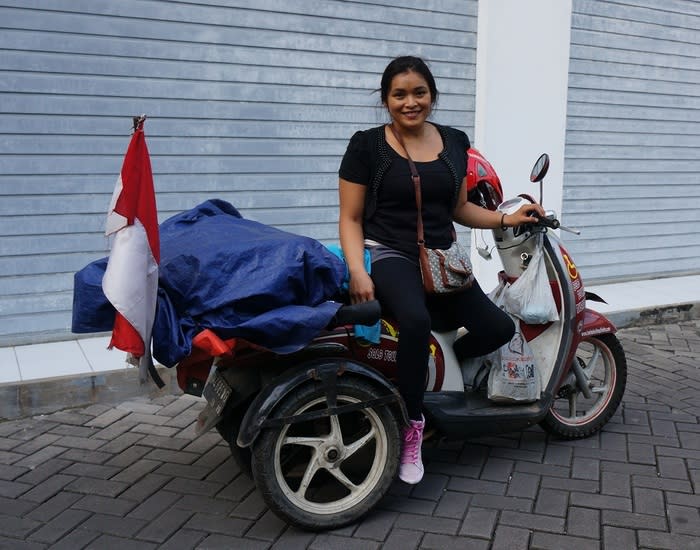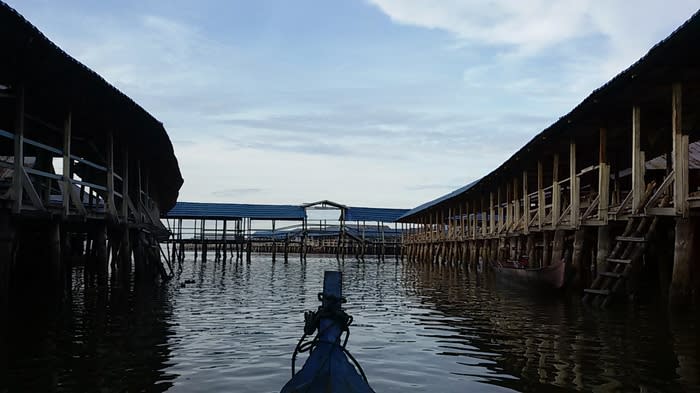Breaking the barriers with Shinta Utami
"You traveled all the way here by yourself?" is a question repeatedly asked of Shinta Utami, which is quite fitting especially when you meet her in a forest in Kalimantan – miles away from the nearest civilization.
Usually 30-year-old Shinta will reply with a polite nod and the conversation continues with stories of her travel before she parts company to continue on her journey. On that particular day however, despite her eagerness to carry on, the tire of her bike had just come off so the truck driver she talked with advised her against it. She ended up getting a lift to the nearest bike shop.
Such problems frequently occur on her journey to visit all the provinces of Indonesia, all in pursuit of getting into the Indonesian Museum of Records (MURI) for the longest distance traveled on a modified scooter by a physically challenged person.
Having contracted polio at the age of four, Shinta only has a limited capacity to walk. On good days, she can cover half a kilometer without a problem, but on other days her feet hurt so that she can barely stroll 100 meters.
Her inability to walk normally, however, has not dampened her enthusiasm to travel. Having received a modified scooter from her father two years ago, she is now only eight provinces short of completing her MURI attempt.
Prior to her record-setting journey, Shinta was busy in community groups. After receiving her modified scooter, she wasted no time in exploring places she wanted to see.
“When I was young I always wanted to go to West Papua,” said Shinta during her recent visit to The Jakarta Post Travel's office.
She did visit West Papua, and not the easily accessible part that can be reached by commercial plane. Shinta entered the region through North Maluku on a two-day ferry ride where she got used to the smell of cows aboard.
“Everybody was holding their breath on the deck, but – after a while on board – I was used to it,” said Shinta.
Even after she reached West Papua, Shinta didn’t only visit the cities. She explored all corners of the region; she went to the trendy Raja Ampat Islands as well as the border between Indonesia and Papua New Guinea.
“When I was still in volunteer work, I saw plenty of instances where Indonesian girls had little control over their life. Young girls in rural areas, they live under the assumption from society that it would be easier for them if they just got married after finishing school,” Shinta explained about what motivated her to start the journey.
Such social tendencies, according to Shinta, give the girls limited perspectives on life. Some cases even see them being persuaded to marry after having finished elementary school, as higher education is deemed to be unnecessary.
“Education is important. By traveling you also learn things – the point is that you can learn anywhere,” she said.
In addition to that, her health is also a major factor, as she said: “Given my condition, I would like to say that whatever dream you have – go for it!”
Before starting her journey, Shinta was also riddled with doubts; her parents were resistant to her ideas, and there was little confidence that the budget would be sufficient or whether her bike could endure such a long trip.
In the end however, she believes the path will show itself if she strives on.
Trouble with her bike is a common thing throughout her journey. Camping in people’s front yards, sleeping at the police station and popping up her tent in a forest are some of the things that happen often. At other times, she has hitched a ride on a Hercules airplane, hopped on a small boat, or just strolled on an island from end to end.
Now, nine months after she started her trip, she is only eight provinces away from getting her name in the record book -- and having her dream come true.









